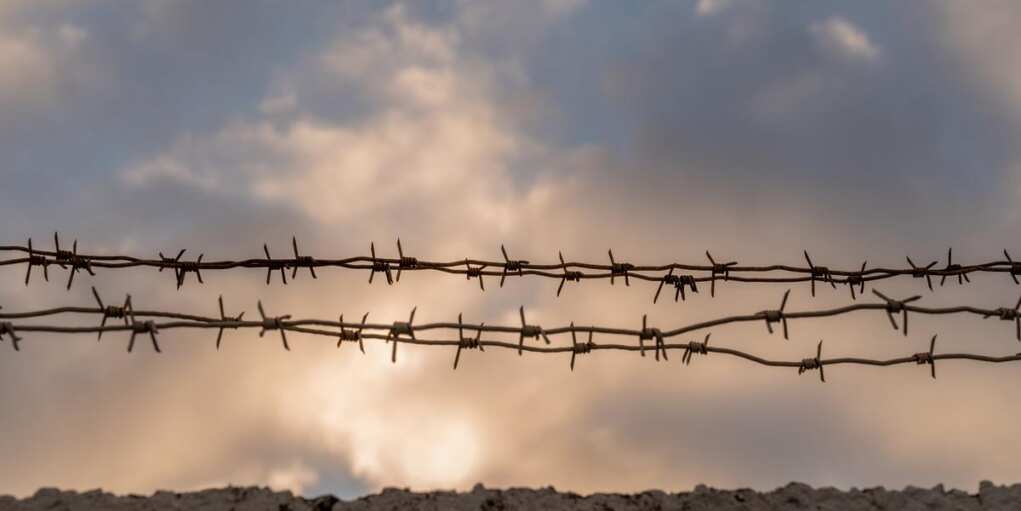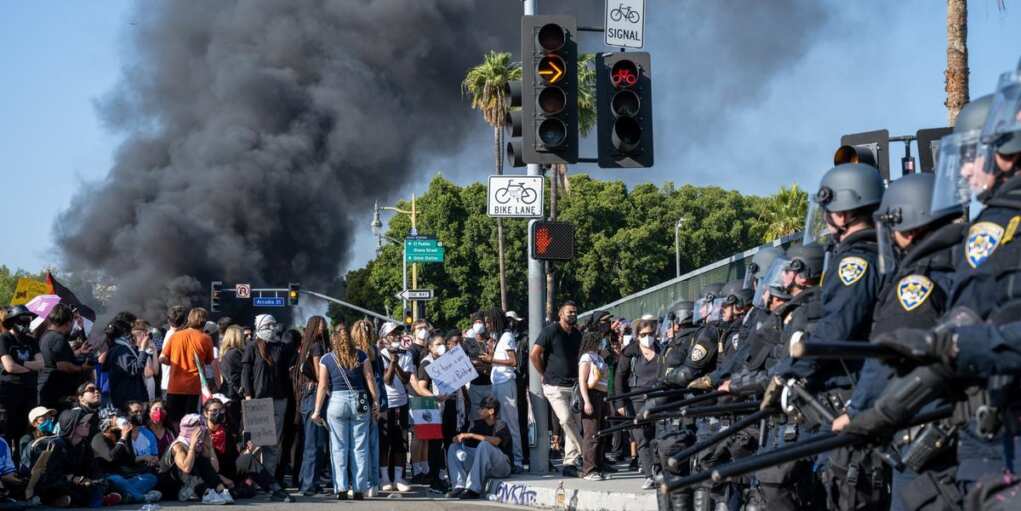Zelensky Goes For The Throat—Start Of WW3?
paparazzza / Shutterstock.comUkrainian President Volodymyr Zelensky issued one of his starkest warnings yet: if the world doesn’t push for regime change in Moscow, the threat from Vladimir Putin’s Russia won’t end—even after the war in Ukraine is over. Speaking to the Organization for Security and Co-operation in Europe (OSCE) via a glitch-ridden video call, Zelensky painted a […]
The Real Threat to MAGA Isn’t the Left — It’s Inside Red States
Denny Pictures / Shutterstock.comWhile many MAGA supporters view Democrats and the progressive left as the primary obstacles to the movement, Andy Roth of the State Freedom Caucus Network says the true danger lies much closer to home. In a powerful interview on Blaze News’ The Mandate, Roth called out the growing epidemic of so-called “RINOs” — Republicans In […]
35 Years for Defying Covid Mandates— Now Everything Has Changed
DC StudioDr. Michael Kirk Moore, a Utah plastic surgeon once staring down the barrel of a 35-year federal prison sentence, is now a free man — and he’s not staying quiet. On Sunday, standing in front of the U.S. Supreme Court, Moore declared victory not just for himself but for what he called “medical conscience” in […]
The American Pharma Problem No One’s Solving
GorodenkoffWhile Washington argues over trade deals and border security, America is quietly facing a national security crisis hiding in plain sight — its pharmaceutical supply chain. On Tuesday’s Alex Marlow Show, Breitbart News economics editor John Carney laid out a sobering truth: the United States is severely dependent on foreign countries for almost all its […]
Trump’s Scotland Swing Delivers Peace—and Power Plays
Joey Sussman / Shutterstock.comPresident Donald Trump’s whirlwind trip to Scotland didn’t just involve handshakes and headlines—it yielded what the White House is calling “peace deals and trade deals” that could dramatically reshape U.S. global influence. From striking a landmark economic pact with the European Union to brokering a surprise ceasefire in Southeast Asia, Trump returned stateside with a […]
Landmark Abortion Pill Lawsuit Shakes Up Pro-Life Movement
KmpzzzA groundbreaking lawsuit filed in Texas federal court could open a new front in the post-Roe legal war over abortion pills and unborn victims’ rights. Jerry Rodriguez, a Texas man, is accusing a California doctor of “murdering” his two unborn children by mailing abortion drugs across state lines—marking the first time this legal tactic has […]
Pentagon Bans Globalist Events—No More ‘America Last’ Forums for Top Brass
Ivan CholakovThe Department of Defense is drawing a hard line under President Trump’s renewed America First doctrine, with new orders to blacklist think tank events pushing globalist agendas. In a bold move, the Pentagon has suspended participation in high-profile policy forums—starting with the once-influential Aspen Security Forum. According to a leaked staff email obtained by Politico, […]
Trump’s Building Deportation Camps In Texas
sergio34President Trump’s vow to restore control at the southern border is turning into tangible action—fast. Hot on the heels of the Florida “Alligator Alcatraz” facility, the administration has now announced a $232 million contract to build a massive new illegal alien detention center in El Paso, Texas. The facility will be able to house 5,000 […]
8 Kids Hospitalized After Mysterious Illness Hits Church
shulersA free children’s choir performance at a historic Massachusetts church took a frightening turn Tuesday night when eight young singers were suddenly struck with seizure-like symptoms mid-concert, sending emergency crews scrambling and parents into panic. The incident occurred at St. Paul’s Parish in Cambridge around 7 p.m. as the Chœur d’Enfants d’Île-de-France, a French youth […]
Gabbard Torches Obama for Russia Hoax Flip-Flop
Maxim Elramsisy / Shutterstock.comDirector of National Intelligence Tulsi Gabbard didn’t hold back during a fiery appearance on Fox News this week, blasting former President Barack Obama and the corporate press for dodging the most damning revelation from her office’s recent declassified intelligence review. According to Gabbard, the real scandal isn’t just about spying or wiretaps—it’s about a complete […]
Democrats Throw a Fit About Colbert Cancellation
Bits And SplitsStephen Colbert’s Late Show is officially over—and it wasn’t just the final curtain for the host, but for an era of left-wing late-night television. While Colbert’s loyal audience of D.C. Democrats and liberal pundits took the news hard, their over-the-top reactions have only proven why CBS finally pulled the plug. In trying to defend him, […]
Gabbard Drops 230,000 MLK Files—And the Family’s Reaction Is Not What You’d Expect
Andrea Izzotti / Shutterstock.comTulsi Gabbard’s crusade for transparency just took another historic turn. On Monday, the Director of National Intelligence released a massive trove of 230,000 files related to the assassination of Dr. Martin Luther King Jr., fulfilling part of President Trump’s sweeping declassification order. While the move was praised by some, it has also reignited decades-old tensions […]
Trump Sues Wall Street Journal Over Epstein ‘Hoax’
Joey Sussman / Shutterstock.comPresident Donald Trump is turning up the legal heat on the Wall Street Journal after it published a sensational—and unverified—report tying him to Jeffrey Epstein. On Friday, Trump filed a defamation lawsuit in the Southern District of Florida targeting the Journal‘s parent company News Corp., its publisher Dow Jones, two reporters, and media tycoon Rupert […]
Dems Insult Rural Voters In Shocking Broadcast
HopeNFPhotographyIn what might be the most condescending strategy of the year, Democrats are scrambling to defend taxpayer funding for NPR and PBS by insulting the very Americans they claim to represent. With President Trump’s $9 billion spending cut slashing funds for public broadcasting, left-wing lawmakers and media allies are sounding the alarm—but not about free […]
Poll: Voters Back ICE Raids Amid Shocking Crime Wave
Sua Sponte PhotographyA new national survey has revealed that nearly half of American voters now support ICE raids aimed at deporting illegal immigrants, especially those with serious criminal records. The Cygnal poll, conducted July 1–2 among 1,500 likely general election voters, found that 49.5% of respondents are in favor of the raids, while 47.5% oppose them. Only […]
Most Popular
Most Popular















